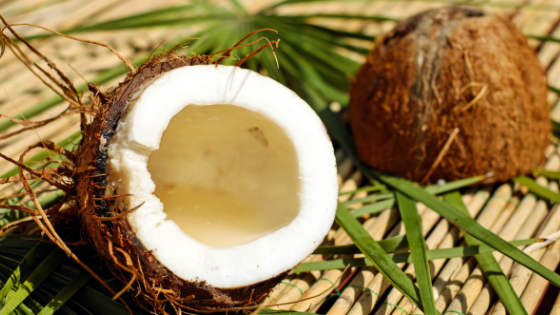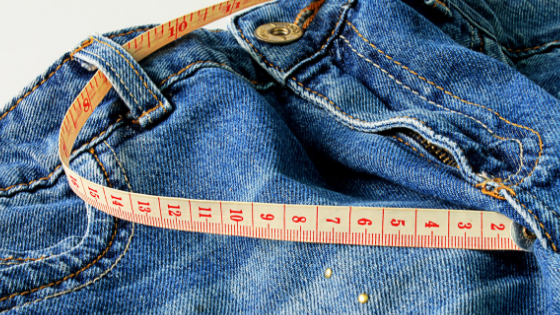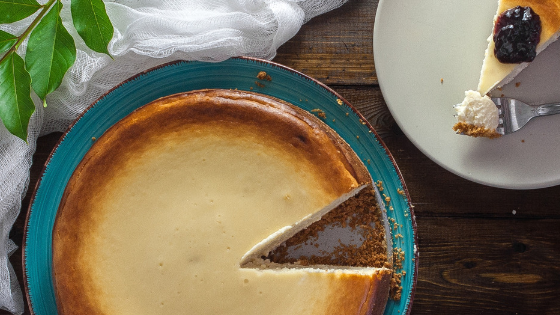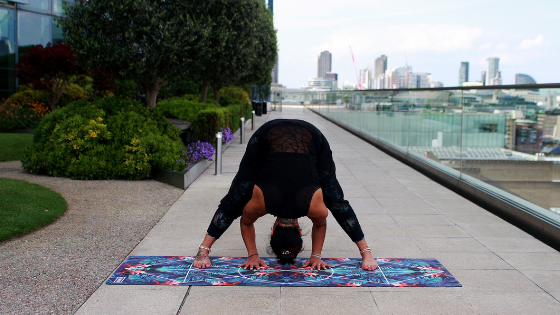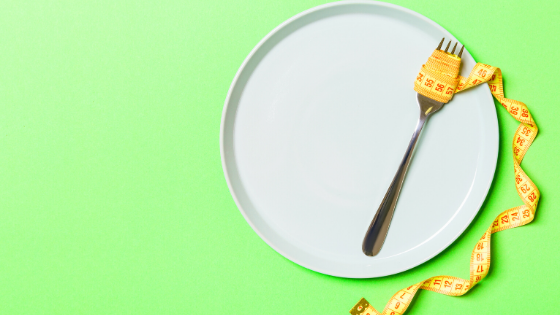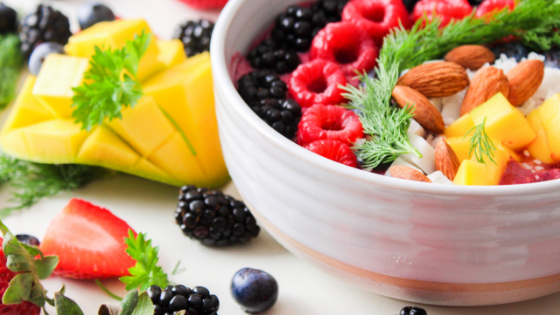Coconut oil is now bad for you? A few things to consider before you freak out over health headlines like this one.
First and foremost, let me just state that I am in no way shape or form interested in debating the health benefits/drawbacks of eating coconut oil today. I am also not a Registered Dietician, nor do I play one on the internet. That being said, I found myself really rattled this past week when I started to see friends of mine post articles about the American Heart Association’s claims that coconut oil is not considered healthy. My husband announced it to me while we were eating dinner the other night (between sips of beer and bites of bacon burger), probably because he thought it might fire me up a little. I love coconut oil. I stir fry veggies in it. Concoct little chocolatey coconutty treats with it. I like the texture of those kettle chips that are cooked in it. Sometimes I whip a bit up in my coffee. I use it as a moisturizer, hair conditioner, and eye makeup remover. Sometimes I even wash my whole face with it.
I know all these uses for coconut oil, and other natural and healthy(?) food facts because for a long time it was a bit of a hobby for me. I used to listen to tons of health and nutrition podcasts, and read dozens of books on the topic. I learned how to make pretty much any food item with “better-for-you” ingredients. Sometimes I still do, just much less obsessively now. Because of this, my friends and family often look to me to confirm the health merits of their food choices.
They also like to fill me in on the latest health headlines:
“Bananas are bad because of all the sugar.”
“Red wine is good for your heart.”
“But drinking is bad for your liver!”
“Pumpkin pie is good for you.”
“So is dark chocolate.”
“Except that it has caffeine and caffeine is the devil.”
Don’t even get me started on the low fat craze of the 90’s where we all went crazy for boxes of “healthy” SnackWells devils food cookies. Or was that just me?
Anyway…my thoughts on these coconut oil headlines, and any news stories that demonize or place certain food groups on a pedestal, is that we really need to be taking them with a grain of (himalayan sea) salt. Wait, is salt “good” or “bad”? *rolls eyes*
Here are some things to consider when evaluating the validity of a health claim and deciding if it’s right for you:
- Who is the source? There is a lot of sketchy information on the internet. Pay attention to the credentials and reputation of the people who have done the research AND the source that is presenting it.
- Who is funding the study? If the study was funded by a pharmaceutical or consumer product company, beware. They have a vested interest in the outcome. It’s very easy to tweak the way an experiment is conducted to create favorable results. Unfortunately those results are often presented in a misleading way, especially if there is money at stake for the sponsor of the study.
- What is kind of study is it? Was the research done on humans or animals? Was it an experimental or observational study? How large was the study? Was it published in a respected medical journal? Was it peer reviewed? What are the exact statistics surrounding the claim?
- What are YOUR specific health concerns? The health merits of different foods are not universally black and white. Different nutrients help the body do different things. Before you embrace or reject a certain food, ask yourself how it fits with your individual goals.
- Compared to what? That’s a good question to ask yourself when deciding if something is “healthy” for you. Eating coconut oil by the spoonful might not look like the best idea when you compare it to eating a bowl of kale. But if sautéing your veggies in a little coconut oil helps make them more palatable so you can actually enjoy eating them, then it might just be a good thing.
- Will it cause you more stress to restrict this food? Because that won’t be healthy either. I remember I did an elimination diet for fun once. It was not fun. Having a mini-meltdown picking tiny chunks of cheese and candied pecans off your salad because the people at Panera forgot your special request is NOT healthy. Unless you’re allergic, a little sugar and dairy (or whatever) won’t kill you.
- Have you tried it for yourself? Bio-individuality is real! Each of our bodies respond differently to the things we consume. Pay attention to how you feel after eating different foods, and decide how they affect your overall well-being. When you go to the doctor, take note of your blood markers. If they aren’t so great, you can experiment with adding/subtracting different foods (if that’s your priority) and see what works best for YOU.
- Remember that it’s ok to know that something isn’t the healthiest food and still eat it anyway if you want. Know that health trends come in waves. Ridiculous ones that (like my collegiate love affair with SnackWells cookies) we can look back and laugh at. We’re all going to die eventually. I don’t think coconut oil (or any single food alone) is going to be a big game changer for anyone’s longevity.
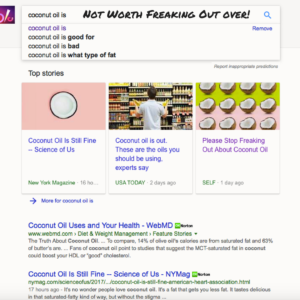
I have only touched on the basics when it comes to considering the validity of health claims in the media. If you are interested in learning more, here are some good articles and books to help you get started. Check them out if you’d like or just go live your damn life. Coconuts optional.
http://www.huffingtonpost.com/susan-blumenthal/health-and-the-headlines_b_9749588.html
http://www.bbc.com/future/story/20170207-how-to-spot-misleading-health-news
https://www.amazon.com/Coffee-Good-You-Low-Carb-Nutrition/dp/0399537252

